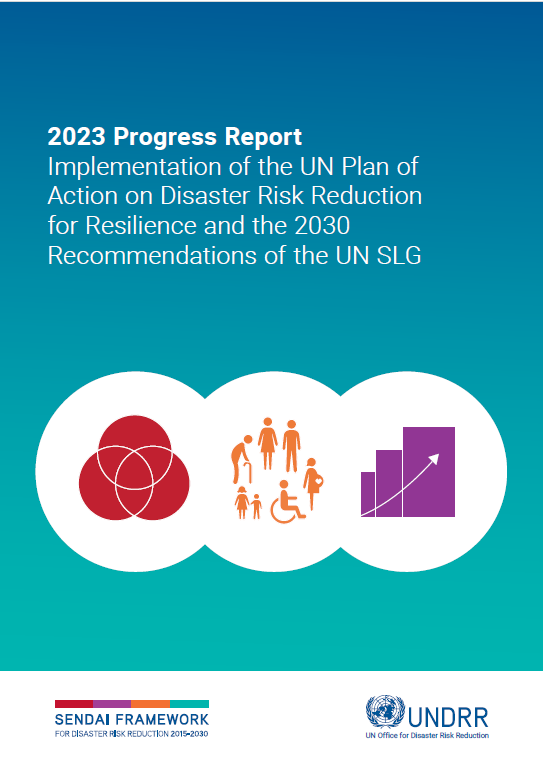United Nations Plan of Action on DRR for Resilience
Since 2013, UN system support in disaster risk reduction has been guided by the first UN Plan of Action on Disaster Risk Reduction for Resilience. To align it with the 2030 Agenda for Sustainable Development, the revised UN Plan of Action on Disaster Risk Reduction for Resilience: Towards a Risk-informed and Integrated Approach to Sustainable Development was adopted by the UN Chief Executives’ Board in 2016.
At a glance
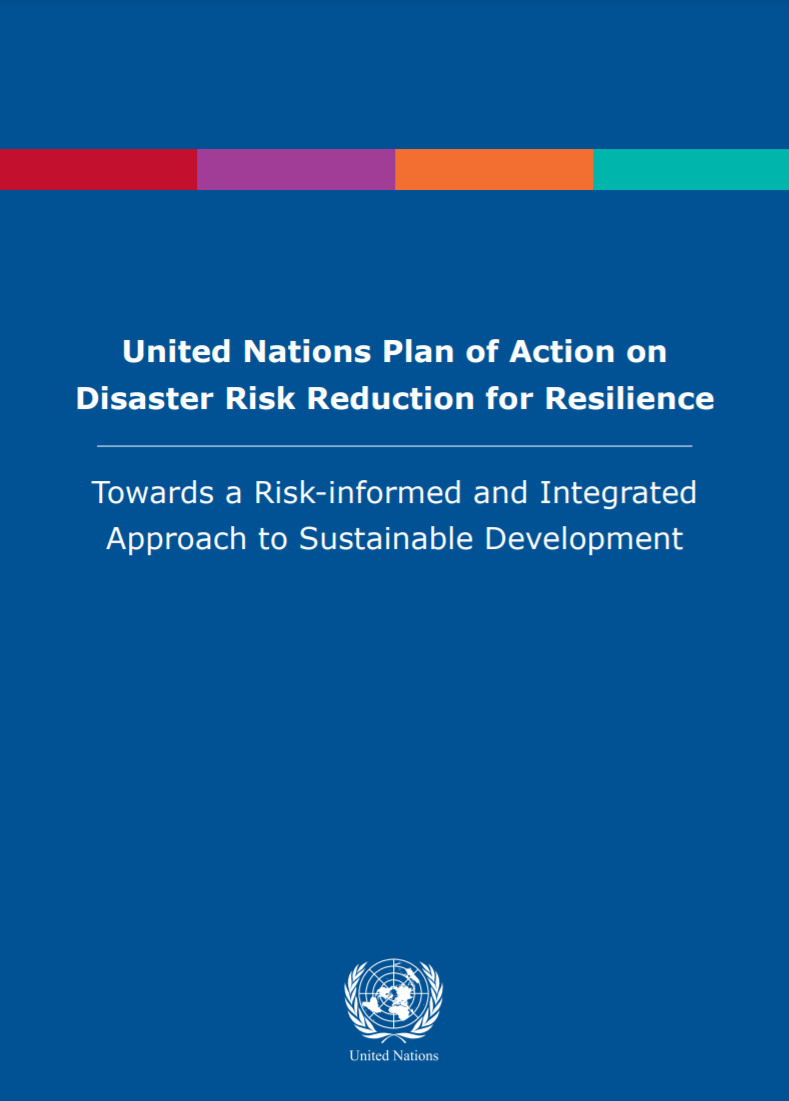
The UN Plan of Action on Disaster Risk Reduction for Resilience is the contribution by the UN to ensure the implementation of the Sendai Framework contributes to a risk-informed and integrated approach to the achievement of the 2030 Agenda for Sustainable Development. It is one of the main tools to maximize UN efforts to support countries to strengthen risk-informed development programming, planning and investment and ensure no one is left behind.
The UN Plan of Action on Disaster Risk Reduction for Resilience lays down the principles, commitments, guidance and targets for the UN system to reduce the loss from disasters and support countries and communities in implementing the Sendai Framework.
UN Plan of Action on Disaster Risk Reduction for Resilience
The UN Plan of Action on Disaster Risk Reduction for Resilience outlines the following three Commitments for the UN system:

Commitment 1
Strenghten system-wide coherence in support of the Sendai Framework and other agreements, through a risk/informed and integrated approach.
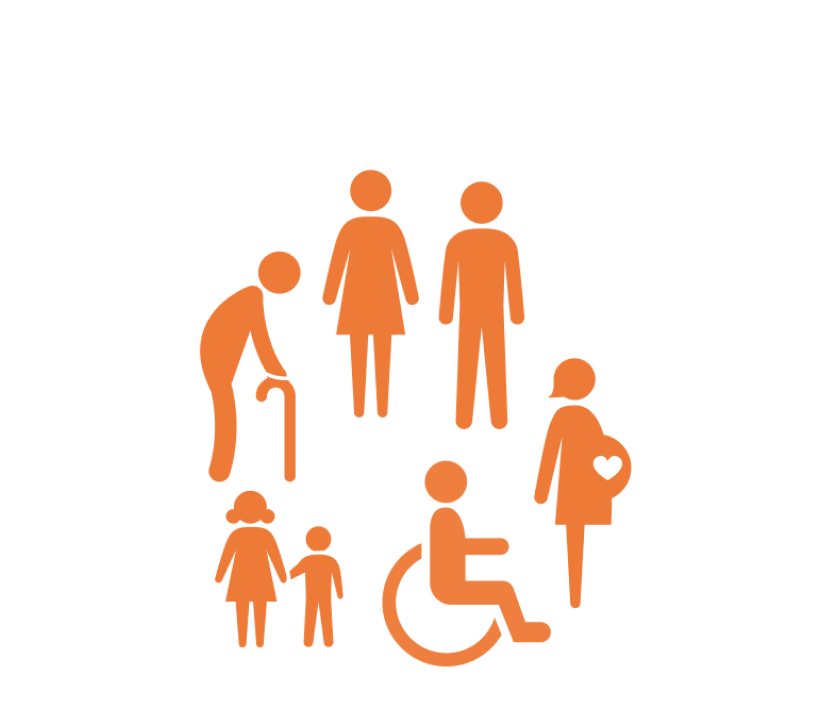
Commitment 2
Build UN system capacity to deliver coordinated, high-quality support to countries on disaster risk reduction.

Commitment 3
Ensure disaster risk reduction remains a strategic priority for UN Partners.
Implementing the UN Plan of Action on Disaster Risk Reduction for Resilience
UN Plan of Action Progress Reports present the summary of progress with regard to the three Commitments of the UN Plan of Action, based on the Results Framework, as reported by UN Funds, Programmes, Specialized Agencies etc. (hereafter UN organizations) for the preceding year. It further reflects on collective achievements, opportunities and limitations.
Progress Reports on the implementation of the UN Plan of Action on DRR for Resilience:
Key 2023 achievements
121
countries reported to the Sendai Framework Monitor (SFM) on common DRR-related indicators.
138
countries were supported by UN organizations in risk-informing their cross-sectoral and/or subnational development strategies and plans.
21
UN organizations supported 152 countries in implementing regional and global early warning mechanisms.
28
UN organizations have integrated disaster and climate risk into their monitoring and evaluation systems and strategic frameworks.
31
UN organizations implemented 172 actions supporting gender-responsive DRR and climate change adaptation.
The oversight of the UN Plan of Action has been entrusted to the UN Senior Leadership Group on DRR for Resilience (UN SLG). Annually, this group endorses recommendations prioritizing concrete joint actions to further the implementation of the UN Plan of Action with a view to ensuring country-level impact.


In 2023, The United Nations Senior Leadership Group (UN SLG) on Disaster Risk Reduction for Resilience endorsed the 2030 UN SLG recommendations in the margins of the High-Level Meeting on the Mid-term Review of the Sendai Framework. These will guide the UN system-wide support on disaster risk reduction, climate change adaptation and resilience building until 2030. The recommendations and the related Action Plan complement the commitments made in the UN Plan of Action on Disaster Risk Reduction for Resilience.
2023 UN SLG Recommendations
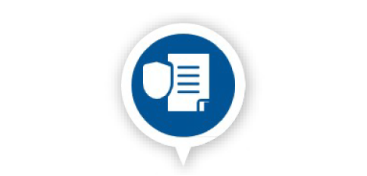
Recommendation 1
Strengthen risk governance at all levels, including within and across sectors.
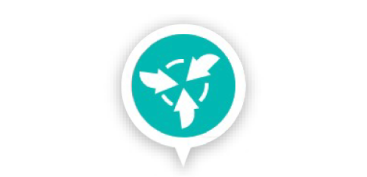
Recommendation 2
Accelerate efforts to risk-inform programming in development, humanitarian and peace actions.

Recommendation 3
Support efforts related to investing in DRR for resilience and reforming the financial system to better consider climate change, the environment and other risks.

Recommendation 4
Boost an all-of-society approach to DRR and climate change adaptation by:
- 4.1 Scaling up and systematizing an all-of-society approach by strengthening inclusion and applying a human-rights approach to DRR to leave no one behind.
- 4.2 Enabling gender-responsive DRR and climate change adaptation.
- 4.3 Scaling up and systematizing child-responsive DRR and climate change adaption.

Recommendation 5
Strengthen risk governance at all levels, including within and across sectors.
Maximize efforts around strengthening multi-hazard early warning systems.
The annual UN SLG recommendations are informed by the findings of the UN Plan of Action progress report and emerging trends. A technical group, the UN DRR Focal Points Group, supports the UN SLG and guarantees the implementation of the UN SLG recommendations.
Reporting on progress in the implementation of the UN Plan of Action on Disaster Risk Reduction for Resilience is completed by UN entities on an annual basis (January-December) for the preceding year against the following Results-based Analytical Framework that determines concrete actions under the three Commitments.
UN support to the UN Plan of Action on Disaster Risk Reduction for Resilience
The following UN Funds, Programmes, Specialized Agencies and others support the UN Plan of Action on Disaster Risk Reduction for Resilience:
50 total
